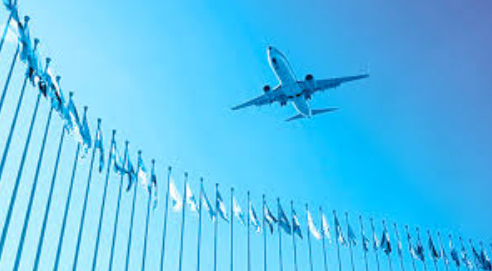 In a speech at the inaugural Council for the International Civil Aviation Organization (ICAO) in Abu Dhabi, the UN aviation president claimed that air traffic is going to double up in the next 15 years.
In a speech at the inaugural Council for the International Civil Aviation Organization (ICAO) in Abu Dhabi, the UN aviation president claimed that air traffic is going to double up in the next 15 years.He believes Blockchain technology can make the industry more efficient. Handling the huge amount of data and security measures required to transport passengers across the world is a real challenge for the airline industry. However, by using technologies such as facial recognition, interacting with government databases, and having access to information in a secure manner and real-time globally via a Blockchain, offers some solutions. It is not just dealing with passengers that it is thought Blockchain can help, but also to reduce the huge amount of paperwork and customs documentation required in the air cargo industry.
Then there is the necessity to ensure that aircraft spare parts are genuine, and as increasingly airlines and their spare parts suppliers start to use 3D printing to manufacture spare parts to avoid the need for lots of expensive parts to be held in multiple locations globally, there has been discussion about the need for “A Chain of Trust”. This refers to the use of Blockchain technology to protect the intellectual property (IP) when using 3D printing, by issuing a license.
Consider a situation where none of the parties (the airline, the printing service provider and the parts' manufacturer which owns the IP) do not trust each other. One needs to determine who owns the IP and whether the part has already been licensed by someone else.
It is helpful to think of Blockchain technology as a skeleton, infrastructure, from which other technology hangs, as it facilitates data to be stored and distributed in a highly secure manner enabling, where required, Artificial Intelligence, 3D printing, facial and biometric identification.


